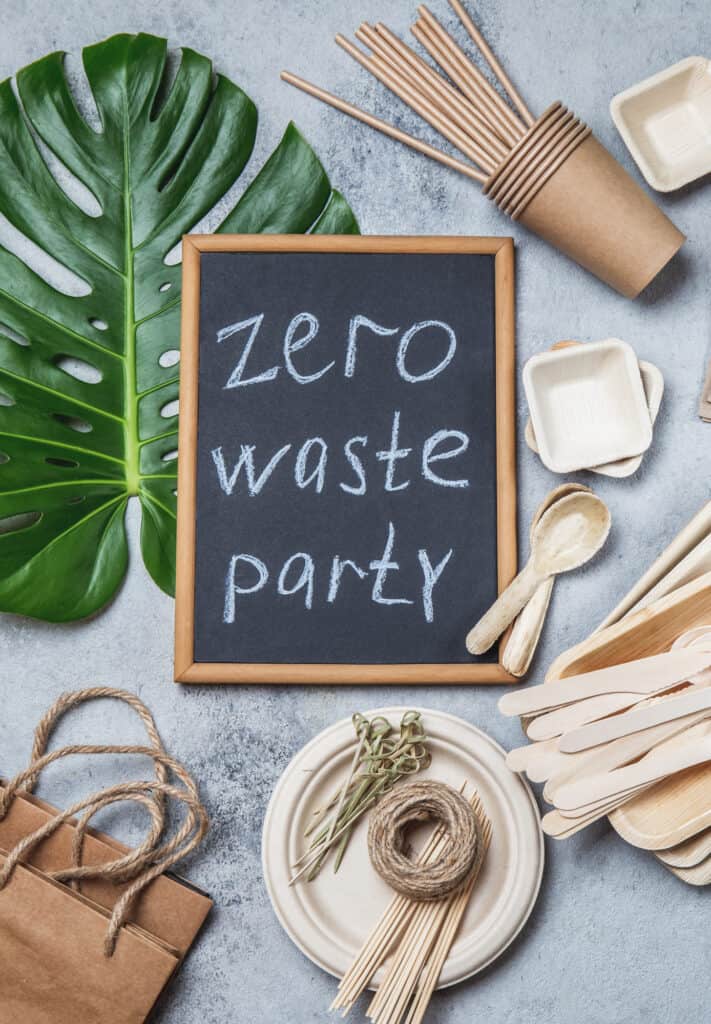Explore sustainable disposable dinnerware options for eco-friendly entertaining. Consider biodegradable materials like bamboo, palm leaf, and sugarcane bagasse. Opt for compostable and recyclable products to reduce environmental impact. Choose stylish and durable alternatives that align with your values, ensuring guilt-free hosting while minimizing waste.
Introduction to Sustainable Disposable Dinnerware
As society gravitates towards more eco-friendly living practices, using sustainable products has become crucial to everyday life. One such practice involves using disposable dinnerware that aligns with environmental values. Sustainable disposable dinnerware offers a convenient and eco-conscious event planning and entertaining solution. These products are designed to provide ease with single-use items while being kind to the environment. They are made from renewable resources and can be composted or recycled after use. The aim is to leave the smallest carbon footprint possible while enjoying the practical benefits of disposable options.
The Benefits of Choosing Eco-Friendly Options
The shift towards eco-friendly disposable dinnerware comes with considerable environmental benefits. Primarily, it significantly reduces the amount of waste directed to landfills. This is a crucial step, considering traditional plastics can decompose for hundreds of years. Furthermore, producing sustainable alternatives often has a lower carbon footprint, contributing to climate change mitigation. A supporting recent study illustrates the broader environmental benefits of these products, including reduced energy consumption during production and the conservation of natural resources. For the eco-conscious consumer or event planner, the benefit of supporting these green initiatives is clear – contributing to a healthier planet while meeting the practical needs of modern lifestyles.
Materials Matter: Types of Sustainable Disposable Dinnerware
Regarding sustainable disposable dinnerware, the materials used in production are paramount. Paper-based products are a popular choice due to their biodegradability and relative ease of recycling. However, newer, more innovative materials are making headway in the market. Plant-based alternatives such as plates made from bamboo, palm leaf, or sugarcane are not only biodegradable but also sturdy and capable of handling a variety of foods. Moreover, the advancement of bioplastics offers a promising future, with materials designed to biodegrade within commercial composting facilities, leaving behind no toxic residues. These advancements in material science are paving the way for a future where disposable does not have to mean detrimental to the environment.
Making the Right Choice for Your Event
Finding the perfect disposable dinnerware for your event goes beyond just aesthetic appeal. It entails figuring out the occasion’s particular requirements and matching them with appropriate content. For instance, bamboo and palm leaf products offer a more upscale look that is ideal for weddings or business events, whereas paper-based products might be more fitting for casual gatherings. One should consider the type of food served; hot, oily, or liquid foods may require dinnerware with more resilience and insulating properties. Additionally, environmental conditions, such as outdoor temperatures, can impact the choice of disposable dinnerware – some materials might hold up better in warm weather or when exposed to sunlight.
Occasion-Specific Selections: From Picnics to Formal Gatherings
The versatility of eco-friendly disposable dinnerware is one of its most vital selling points. For casual events such as picnics or barbecues, lightweight and compostable options are ideal, making cleanup easy and environmentally sound. In contrast, more formal events may benefit from dinnerware that boasts a more natural and elegant look, like palm leaf plates. These sustainably sourced materials can align with a rustic or nature-inspired event theme while providing the necessary functionality. The variety of designs available means that no matter the atmosphere you’re aiming to create, there is an eco-friendly option that will fit seamlessly into your planning.
Caring for the Environment: Proper Disposal of Disposable Dinnerware
Proper disposal of disposable dinnerware is an integral part of its environmental performance. Even the most eco-friendly product can contribute to pollution if not disposed of correctly. Reducing greenhouse gas emissions and returning nutrients to the soil are two responsible reasons to compost biodegradable dinnerware. Recycling, where applicable, can also be an effective way to minimize the environmental impact. It’s essential to familiarize oneself with local recycling and composting guidelines, as these can vary significantly. Many communities offer resources to help residents properly dispose of their eco-friendly products, ensuring that we maximize these products’ environmental benefits.
Debunking Myths About Disposable Dinnerware Sustainability
There are several misconceptions surrounding the sustainability of disposable dinnerware that can deter consumers from making eco-friendly choices. Some people believe that all disposable options harm the environment, but this is not true with modern sustainable products. It is essential to consider the lifecycle of these products – which includes how they are made, used, and disposed of – to grasp their total environmental impact fully. Sustainable disposable dinnerware is crafted to have a minimal effect at every stage of its lifecycle, from using less energy and water in production to being compostable at the end of its use. By debunking these myths, we can move towards more informed consumer choices that support environmental stewardship.
Embracing Eco-Friendly Practices in Everyday Life
Embracing eco-friendly practices such as sustainable disposable dinnerware is a step towards a greener future. Beyond single-use products, adopting a sustainable lifestyle can include avoiding plastics, using reusable items, and buying products made from recycled materials. Choosing an eco-friendly alternative over a traditional option can positively impact the environment. As individuals and communities embrace these practices, we contribute to a culture that values sustainability and demonstrates respect for our planet’s finite resources. Ultimately, these collective efforts can lead to significant change and the preservation of the environment for future generations.





